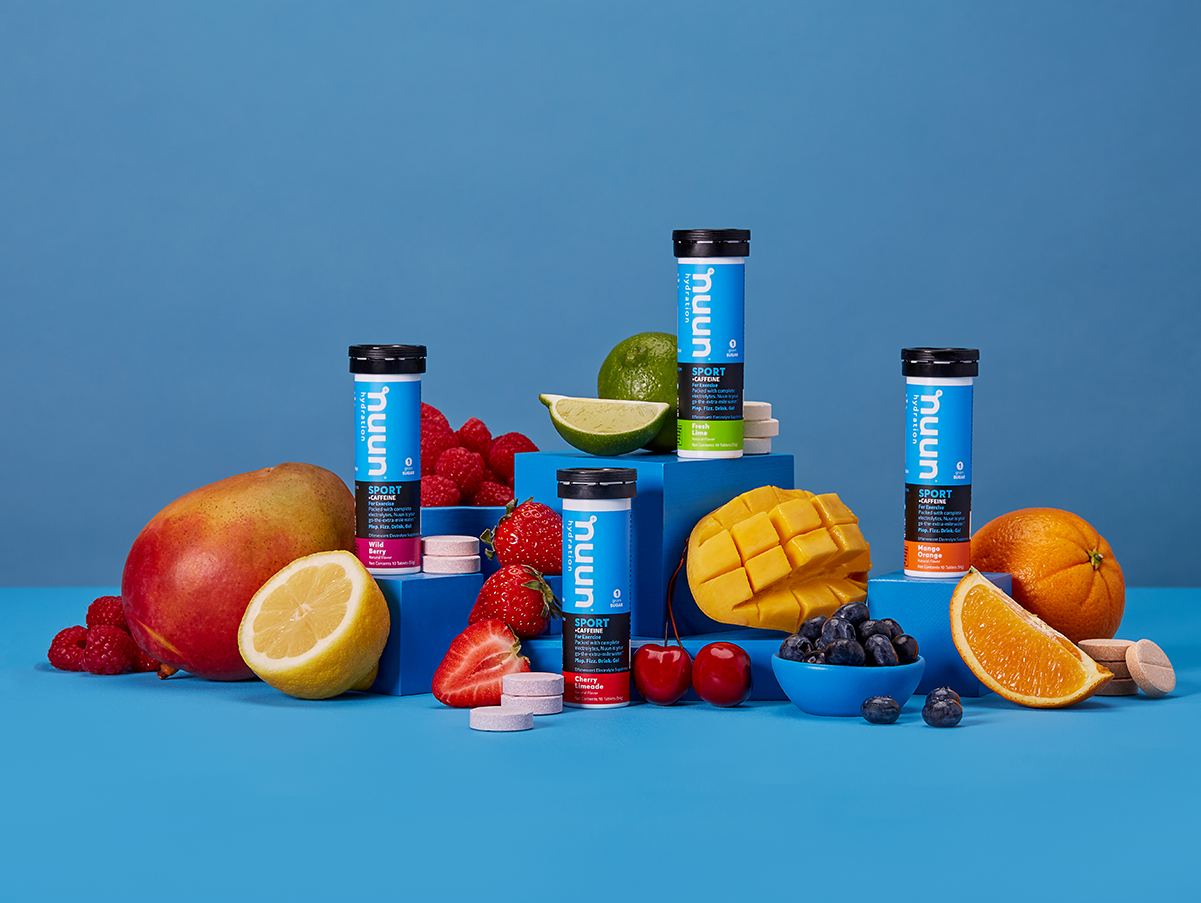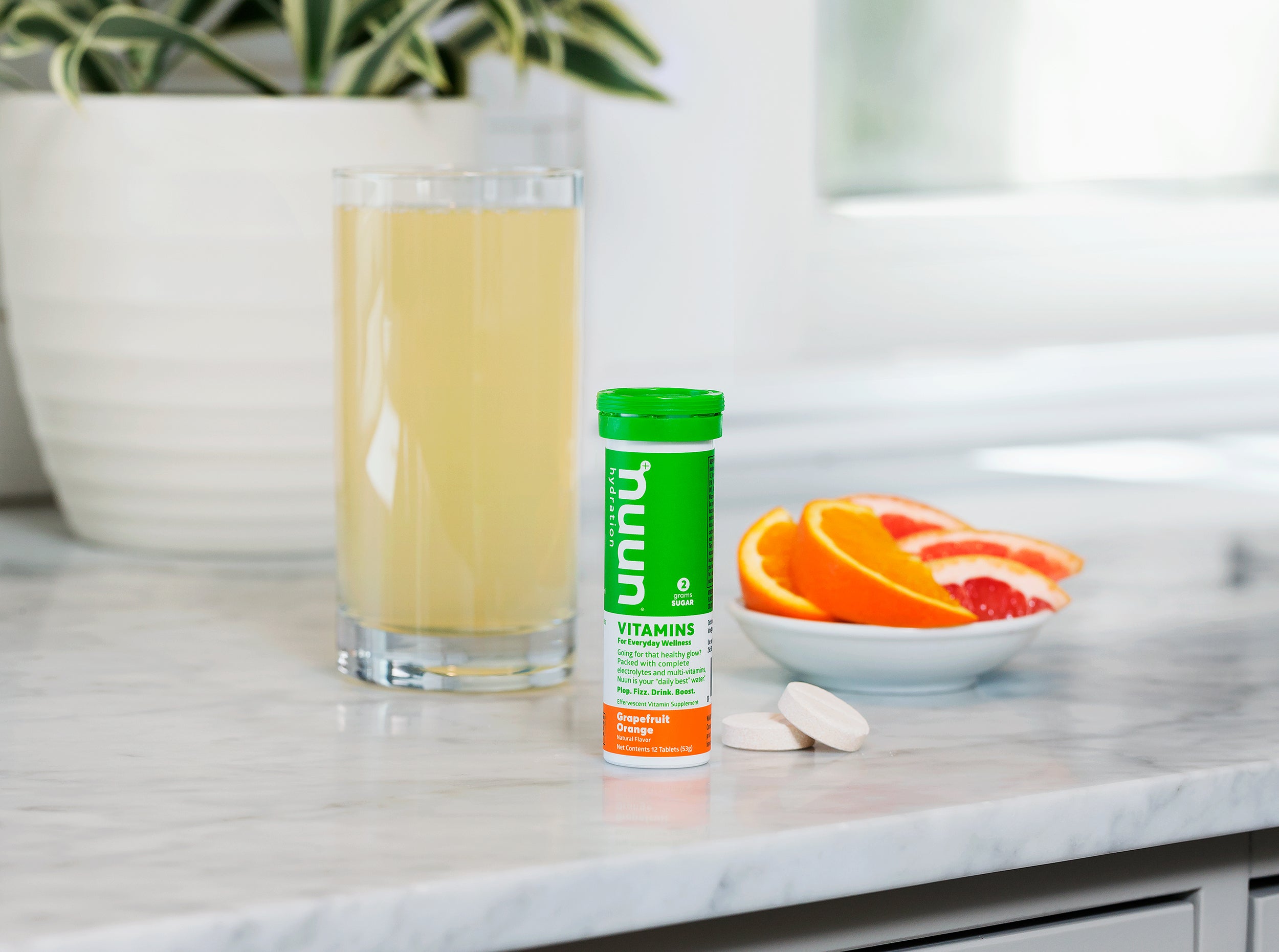How to Get Glowing Skin Naturally Through Vitamins and Supplements

Healthy skin has an irresistible glow. It’s clear, youthful, and supple, and it seems to radiate from the inside out. But the rigors of daily life — including stress, age, and a lack of sleep — can rid your skin of that natural glow, leaving you with lifeless, dull skin.
It’s a common concern: According to a nationwide survey, 60% of people think about skin health on a daily basis.
If you’re wondering how to get glowing skin naturally, you may be curious what matters more: what you put on your skin or what you put inside your body. Turns out, it’s a little bit of both.
How to Get Glowing Skin: Work From Both Directions
Look at the skincare aisle of any store, and you’ll see hundreds of options for cleansers, moisturizers, toners and serums. Selecting the right skincare routine is one component of achieving glowing skin.
While a skincare regimen works externally, it’s equally — if not more — important to improve your skin from the inside out. In fact, our research revealed that nearly 70% of people believe that healthy, glowing skin is the result of what you put inside your body, while just over 30% believe it’s more about what you put on your skin.
Ultimately, to get glowing skin, you must work from both directions — using an external skincare regimen, as well consuming the right supplements and vitamins for healthy skin.
In this article, we’ll take a detailed look into how the supplements you put into your body can help you achieve an ideal skin glow.
Vitamin C and Vitamin E for Skin
When you want to protect your skin from the sun, you probably first look to sunscreen. While sunscreen protects on an external level, you can gain additional skin protection through vitamins C and E.
Like SPF for inside your body, vitamins C and E protect against UV-light triggered damage. That means by increasing your vitamin C and E levels, you can improve your resistance to UV exposure.
"Like SPF for inside your body, vitamins C and E protect against UV-light triggered damage. That means by increasing your vitamin C and E levels, you can improve your resistance to UV exposure."
"Like SPF for inside your body, vitamins C and E protect against UV-light triggered damage. That means by increasing your vitamin C and E levels, you can improve your resistance to UV exposure."
Many topical skincare products tout these vitamins for glowing skin, but is that enough? Actually, research has found that ingesting vitamins C and E as supplements, rather than applying them topically, has many benefits. One study specifically evaluated the effects of dietary supplementation (using fermented papaya extract, which contains vitamins E and C) in individuals with visible signs of aging. After just 90 days, there was a measurable improvement in the participants’ skin, including evenness, moisture, and elasticity — all qualities of glowing skin.
Vitamin C supplementation can also increase collagen and lessen the depth of wrinkles in your skin due to natural aging, UV exposure, or oxidative stress.
Antioxidants for Skin Health
You’ve probably heard a lot of talk about antioxidants, but do you know why they’re so good for your body — and especially your skin?
Antioxidants combat free radicals in your body. While free radicals serve important functions, like fighting infections, your body must maintain an ideal balance of antioxidants and free radicals. If that balance gets thrown off — by factors like alcohol intake, high blood sugar levels, or an antioxidant deficiency — you can end up with unhealthy levels of free radicals.
A high level of free radicals can lead to oxidative stress, which can break down collagen and hinder your skin’s natural ability to repair itself. Ultimately, that can mean more fine lines, wrinkles, breakouts, and an uneven skin tone.
By taking in antioxidants, you can maintain the right balance of free radicals and maintain your skin’s healthy glow.
What antioxidants have
been proven to improve
skin health?
ELDERBERRY
Well-known as a natural remedy for colds and the flu, elderberry also has direct benefits for skin health. This antioxidant has been shown to help improve microcirculation, or the circulation of blood throughout the skin’s network of tiny blood vessels.
During the natural aging process, people experience a reduced flow of blood to the skin. That diminished blood supply can lead to loss of elasticity and fullness, and the appearance of lines and wrinkles.
That effect can be reversed by anthocyanins, the compound in elderberry that gives it a rich, dark color. In studies, subjects who were given anthocyanins experienced an improvement in microcirculation, leading to healthier, younger-looking skin.
TURMERIC
Turmeric, a golden spice common in curries, is considered a superfood that’s gained recent popularity in recipes like “golden milk.” And for good reason: One of the main compounds in turmeric, curcumin, has been shown to improve skin health and function.
Curcumin neutralizes free radicals and stimulates your body’s antioxidants. Several studies have also found that turmeric and curcumin, both oral and topical, are effective in improving skin conditions like acne and facial photoaging.
ELDERBERRY
Well-known as a natural remedy for colds and the flu, elderberry also has direct benefits for skin health. This antioxidant has been shown to help improve microcirculation, or the circulation of blood throughout the skin’s network of tiny blood vessels.
During the natural aging process, people experience a reduced flow of blood to the skin. That diminished blood supply can lead to loss of elasticity and fullness, and the appearance of lines and wrinkles.
That effect can be reversed by anthocyanins, the compound in elderberry that gives it a rich, dark color. In studies, subjects who were given anthocyanins experienced an improvement in microcirculation, leading to healthier, younger-looking skin.
ELDERBERRY
Well-known as a natural remedy for colds and the flu, elderberry also has direct benefits for skin health. This antioxidant has been shown to help improve microcirculation, or the circulation of blood throughout the skin’s network of tiny blood vessels.
During the natural aging process, people experience a reduced flow of blood to the skin. That diminished blood supply can lead to loss of elasticity and fullness, and the appearance of lines and wrinkles.
That effect can be reversed by anthocyanins, the compound in elderberry that gives it a rich, dark color. In studies, subjects who were given anthocyanins experienced an improvement in microcirculation, leading to healthier, younger-looking skin.
TURMERIC
Turmeric, a golden spice common in curries, is considered a superfood that’s gained recent popularity in recipes like “golden milk.” And for good reason: One of the main compounds in turmeric, curcumin, has been shown to improve skin health and function.
Curcumin neutralizes free radicals and stimulates your body’s antioxidants. Several studies have also found that turmeric and curcumin, both oral and topical, are effective in improving skin conditions like acne and facial photoaging.
ECHINACEA
Echinacea, a group of flowering plants in the daisy family, has been proven to boost the immune system and reduce symptoms of illnesses like the common cold. However, it also boasts great benefits for your skin.
In one study, scientists found that Echinacea suppressed the growth of Propionibacterium, a common cause of acne. In general, the supplement has been shown to not only inhibit growth of bacteria, but reverse bacterial-induced inflammation. Ultimately, that means clearer, more radiant skin.
Does Drinking Water Help Your Skin?
Drinking water is critical for healthy skin. Skin is the largest organ in the body — and like your other systems and organs, it depends on water to thrive. According to Harvard Medical School, for skin to feel soft and supple, it should contain a minimum of 10% water, but ideally, between 20% and 35%. Without that level of hydration, skin will feel dry, and may even shrivel and crack.
Even further, the enzymes in your skin that promote plumpness and elasticity (including hyaluronic acid and collagen) require a fluid-like environment to function. Without that hydrated environment, skin can begin to look saggy and leathery.
Does Drinking Water Help Your Skin?
Drinking water is critical for healthy skin. Skin is the largest organ in the body — and like your other systems and organs, it depends on water to thrive. According to Harvard Medical School, for skin to feel soft and supple, it should contain a minimum of 10% water, but ideally, between 20% and 35%. Without that level of hydration, skin will feel dry, and may even shrivel and crack.
Even further, the enzymes in your skin that promote plumpness and elasticity (including hyaluronic acid and collagen) require a fluid-like environment to function. Without that hydrated environment, skin can begin to look saggy and leathery.
"For skin to feel soft and supple, it should contain a minimum of 10% water, but ideally, between 20% and 35%. Without that level of hydration, skin will feel dry, and may even shrivel and crack." — Harvard Medical School
"For skin to feel soft and supple, it should contain a minimum of 10% water, but ideally, between 20% and 35%. Without that level of hydration, skin will feel dry, and may even shrivel and crack." — Harvard Medical School
Throughout your normal daily routine, however, you naturally and consistently lose water through breathing, sweating, and urinating. If you don’t take in enough water, you may become dehydrated. That will affect your overall health, of course — resulting in symptoms like fatigue, dizziness, or confusion — but it will also impact the quality and glow of your skin.
Even worse, many people don’t realize that they aren’t taking in enough water. In fact, 60% of people nationwide believe they drink enough water each day, but 75% of Americans are chronically dehydrated.
In short:
You’re probably not as hydrated as you think you are.
Figuring out how to get glowing skin comes down to paying attention to what you put in your body. Increasing your water intake and consuming supplements and vitamins for healthy skin can have a dramatic impact on your skin health. From building elasticity to combatting acne and sun damage, the right combination of vitamins and antioxidants can turn dull skin radiant.



